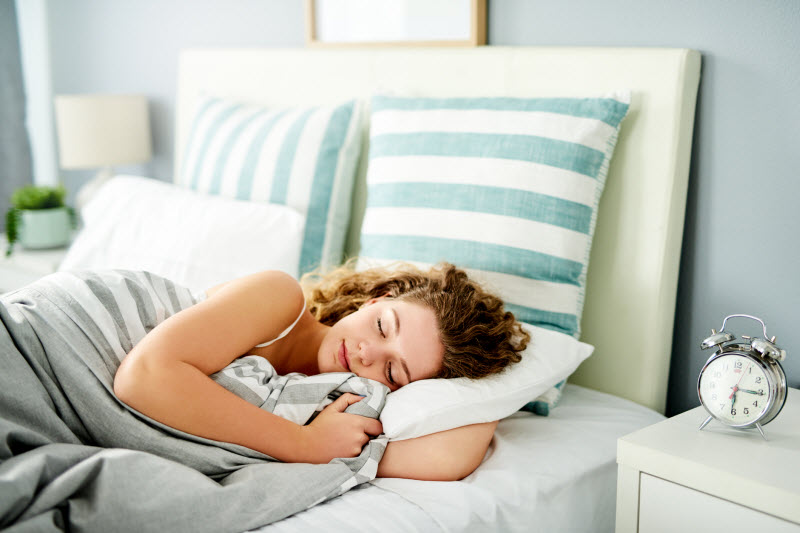Exercise and eating better are tried-and-true ways to lose weight. Now, you can add getting more sleep to the list.
Those who get plenty of shut-eye consume fewer calories over the course of a day, according to a study published in JAMA Internal Medicine and conducted by researchers at the University of Chicago Medicine and the University of Wisconsin–Madison.
The researchers found that young, overweight adults who slept fewer than 6.5 hours each night but later increased the amount of time they spent in bed to 8.5 hours nightly reduced their calorie consumption by an average of 270 calories a day.
Over three years, that would result in a loss of 26 pounds, the study authors say.
Some participants did even better, cutting their consumption by up to 500 calories a day.
Sleep and weight loss: Why lack of sleep matters
Why does sleep at night so heavily influence how much we eat during the day?
Getting enough sleep helps the body regulate hormone levels, including those of leptin and ghrelin, which are closely tied to hunger and appetite, according to the Sleep Foundation.
When we fail to get enough rest, ghrelin increases, making us feel hungry. On the other hand, leptin — which makes us feel full — decreases.
In truth, it has been known for years that sleep deprivation adversely impacts appetite regulation, causing people to eat more calories during the day.
One previous study published in the American Journal of Clinical Nutrition found that not only does a lack of sleep boost hunger, but it also slows the rate at which you burn calories.
Other studies have found that a state of sleep deprivation makes us reach for the worst kinds of foods, such as doughnuts, pizza and other types of high-calorie junk food.
However, the study published in JAMA offered new insight into issue by showing that that increasing sleep actually leads to lower calorie consumption.
The authors of the study published in JAMA note that participants were not asked to restrict their diets. Instead, they ate as they saw fit, and engaged in a normal lifestyle without being asked to make any dietary or exercise changes. That reinforced the real-world value of the findings, the authors say.
Small bedtime changes, big results
However, the study authors said the most surprising aspect of the study was how taking a few simple steps significantly increased the quality of sleep among those who participated in the research.
In a press release, Dr. Esra Tasali, director of the UChicago Sleep Center at the University of Chicago Medicine, says a single sleep counseling session led to basic changes in bedtime habits that paid large dividends.
“We simply coached each individual on good sleep hygiene, and discussed their own personal sleep environments, providing tailored advice on changes they could make to improve their sleep duration,” she said.
On average, participants increased their sleep duration by more than one hour per night.
The study did not assess which factors had the biggest impact on increasing sleep, but Tasali noted that limiting the use of electronic devices prior to bedtime appeared to make a big difference.
Are you hoping to increase sleep so you can reduce calorie intake? The Sleep Foundation recommends slowly winding down before bedtime. About a half-hour before turning in, engage in a relaxing activity, such as:
- Reading a book
- Listening to soothing music
- Engaging in relaxation exercises
Avoid using electronic devices during this time.
Lowering the lights in the house at this time also can be helpful, as it may boost the production of melatonin, a hormone that aids sleep.
Once you fall asleep, you will want to stay in that mode for a long while. Keeping your room cool and dark can help. Some people also find that using essential oils or other scents help them to relax and stay that way.




